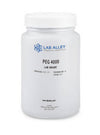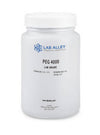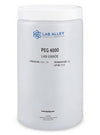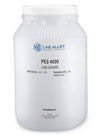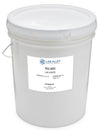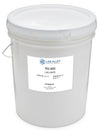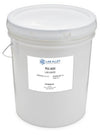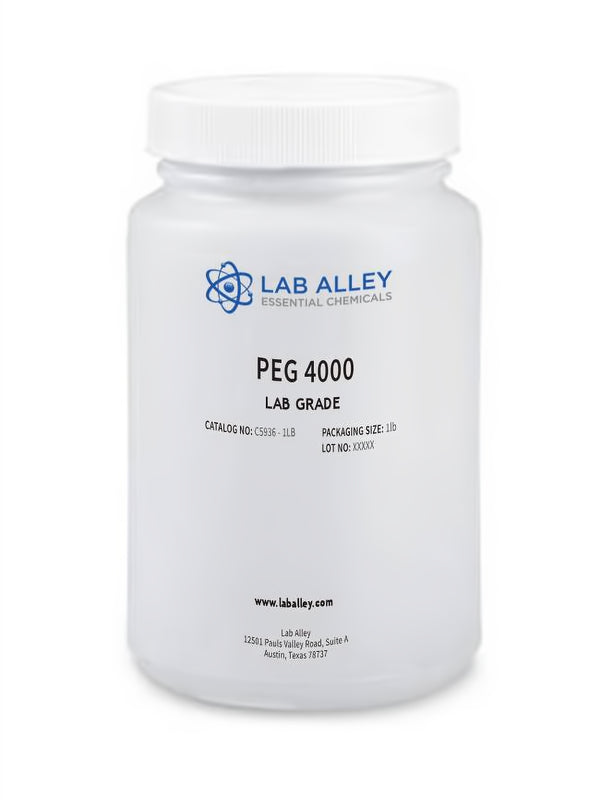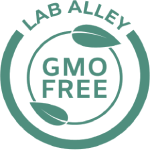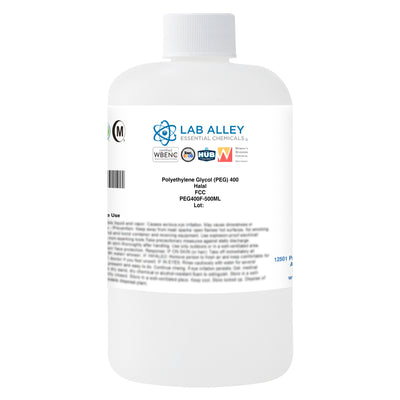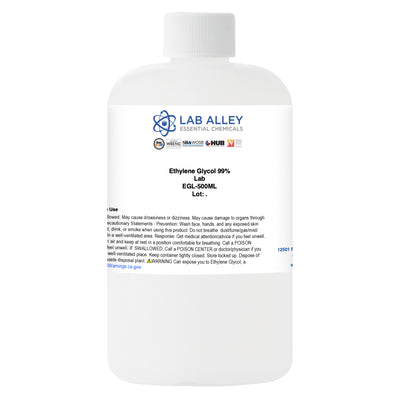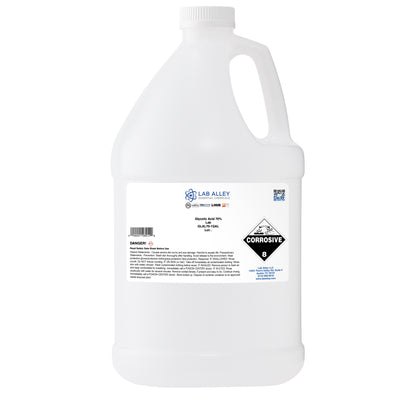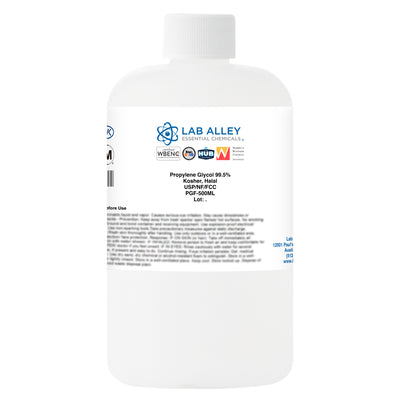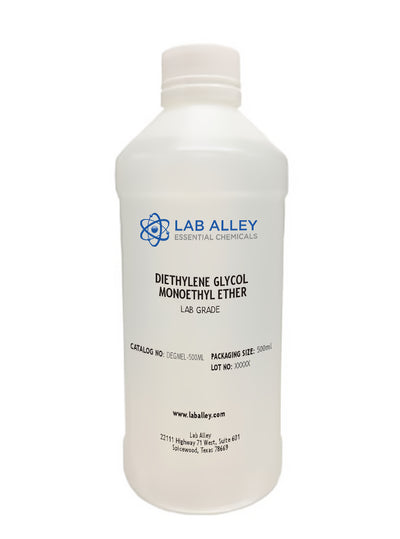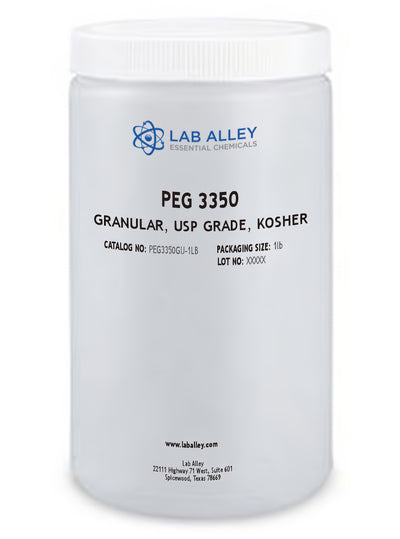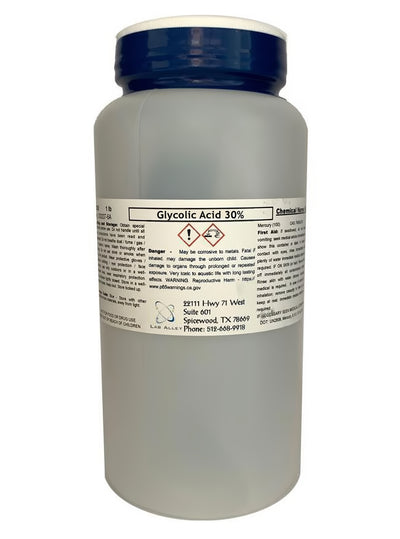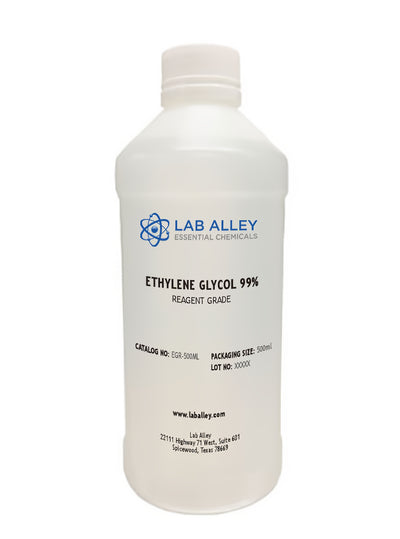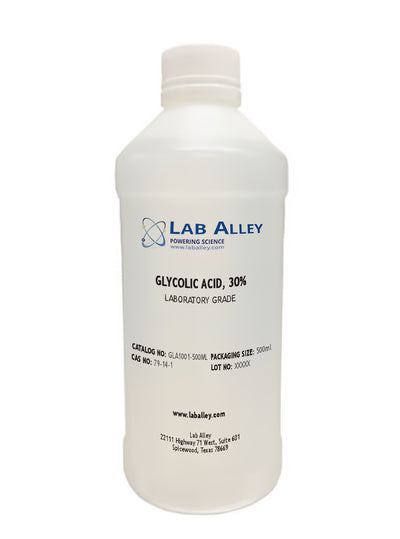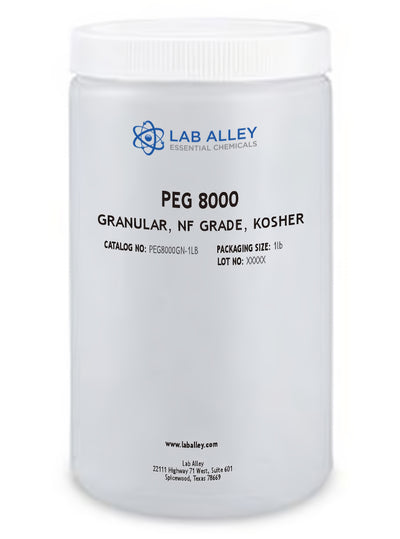Polyethylene Glycol (PEG) 4000, Granular, Lab Grade, Kosher


Also Known As Polyethylene Glycol 4000 Molecular Weight
Business Support
Description
About Polyethylene Glycol (PEG) 4000, Granular, Lab Grade, Kosher
Polyethylene Glycol, (C2nH4n+2On+1), is synthesized by ring-opening polymerization of ethylene oxide. This synthesis process gives PEG a range of molecular weights and distributions from 300 grams per mole to 10,000,000 grams per mole.
PEG 4000 has a molecular weight of 4000 and is colorless, inert, odorless, and non-volatile. PEG is biocompatible, hydrophilic, dissolves readily in water without changing the color odor or taste, and is nontoxic. The number 4000 mentioned with the Polyethylene Glycol 4000, describes its average molecular weight. Lab Grade chemicals possess reasonable purity but do not comply with any official standard for quality or purity. It is recommended to use Lab Alley’s Polyethylene Glycol 4000, Lab Grade be used in training institutes, research labs, and for other commercial applications.
COMMON USES AND APPLICATIONS
- PEG 4000 is used in research labs for the precipitation of proteins, viruses, DNA and RNA.
- PEG 4000 is used to synthesize hydrogels
- PEG 4000 is used as an additive in cement to aid in solvency and lubrication
PRODUCT INFORMATION
Customer Reviews and Q&A
Safety and Shipping
This chemical is not considered hazardous by the 2012 OSHA Hazard Communication Standard (29 CFR 1910.1200)
Business Support
Built for Business.
At Lab Alley, we simplify procurement with custom quotes, credit applications, tax exemptions, and fulfillment support, ensuring on-budget, on-time delivery - your success is our priority.
Apply for Credit
A Lab Alley credit account streamlines purchasing for your business. Our Customer Success Team is available to help you through every step of the process.
Request a Custom Quote
Get a fast, customized quote tailored to your specific needs. Our team ensures accurate pricing and availability to help streamline your purchasing process.

Additional Business Resources
Lab Alley provides access to essential certifications, documents, and other resources to support your business.
Product Manuals
Certificates of Analysis

Create a Lab Alley Account

RECEIVE exclusive offers, promotions, and discounts on chemicals.

Always have the product you need, when you need it with our AUTOSHIP program.

